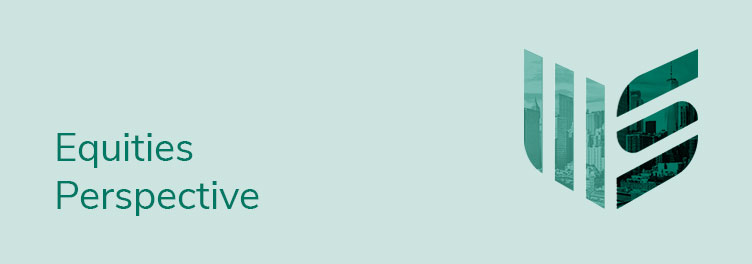
DJIA: 38,996
Go big … going small. Big has dominated the markets, at least in terms of the market averages. The top 10% of the market is 75% of the market. The last time it was this concentrated was 1929. For the first time in almost 40 years, a third of the S&P is just 10 stocks. Concentration isn’t necessarily a bad thing, leaders lead and to some degree markets always will be concentrated. We see the issue being more in the breadth of the market – are the leaders the only thing going up? The good news is they’re not. The Equal Weight S&P (163) reached a new high for the first time in two years. Historically this offers that Index a very high win rate over the subsequent year, according to SentimenTrader.com. Given where the concentration lies, even more surprising the NASDAQ 100 Equal Weight (123) is also nudging new highs. Concentration doesn’t kill markets, it’s losing participation that kills markets. This market seems yet to have done so.
We have likened Nvidia (792) to Cisco (48) for a couple of glaring similarities. They pretty much are the names associated with their respective innovations, the Internet and AI. Innovation typically has been the backdrop for most bubbles. Nvidia may well be tracking Cisco pricewise, but consider that when both started their runs in October, 1998 and 2023 respectively, Cisco didn’t peak until March 2000. Even then the real decline took many weeks to get going. Remember too, unlike the market in 2000, “the market” this time is not itself a bubble. To dance on the dark side we call funnymentals, back then the dot-coms didn’t have revenues let alone earnings, a bit different from what we saw from Nvidia last week. And back then it was the “new economy,” the dot-coms, and the “old economy,” which was pretty much everything else and was moving lower. The A/D Index background was quite poor.
After a couple of weeks of consolidation Bitcoin, particularly as measured by the ETFs new and old, is having a good week. We can see some real bubble-like potential here, particularly on the back of the ETFs. We have suggested some part of the rally in AI stocks likely is due to the ETFs. When you buy an ETF, you’re buying into something like AI regardless of valuations and stretched charts. Bitcoin shares had a good fourth quarter, in anticipation of the adoption of the new ETFs. When this became a reality, it was a sell on the news event, particularly for the miners which dropped as much as 50%. The recent strength could be about the so-called halving slated for April 20, which last time saw a subsequent quadruple for Bitcoin. While this could be anticipatory buying resulting in another need to sell on the news, sufficient unto the day.
When we think of Biotech we think of those who discover the stuff, the drug companies those who sell the stuff. Clearly the latter do both, but when you hear about “trial” most often it’s in reference to Biotech. On Tuesday Janux Therapeutics (48) announced encouraging results in its trials for solid tumors, while Viking Therapeutics (77) announced positive results in a trial for obesity. Janux Therapeutics more than tripled on the news to 50, while Viking only more than doubled to 85. Most of us have learned, often the hard way, these trials are like standing at the roulette table and placing it all on red or black. Still, positive outcomes can be extremely rewarding, as per the above. Our suggestion is get a medical degree, a PhD in Biotech, and find a drop-dead smart guy who knows Biotech stocks. Or consider the SPDR Biotech ETF (XBI-99). It’s an Equal Weight ETF, meaning smaller companies like those above have a greater impact.
Too much of a good thing can be a problem, despite the counsel of Mae West. The history of these glorious starts to a year is the likelihood of a stall around this time. While the market has seemed a bit more rotational of late, the numbers about which we care the most, the A/Ds, show almost surprising strength – in keeping up with those unweighted averages. While it may be time for a stall, we’ve chosen that word carefully. When the average stock is acting as well as it is now, there would not seem great risk. Valuations to our thinking, no surprise, are pretty much useless. Most argue by P/E standards stocks are not expensive. Yet valuations relative to the rest of the world are comparable to 2000, stocks relative to bonds are the most expensive in two decades. Best to just pay attention to the market – most days most stocks go up.
Frank D. Gretz
PLEASE NOTE: Unless otherwise stated, the firm and any affiliated person or entity 1) either does not own any, or owns less than 1%, of the outstanding shares of any public company mentioned, 2) does not receive, and has not within the past 12 months received, investment banking compensation or other compensation from any public company mentioned, and 3) does not expect within the next three months to receive investment banking compensation or other compensation from any public company mentioned. The firm does not currently make markets in any public securities.
